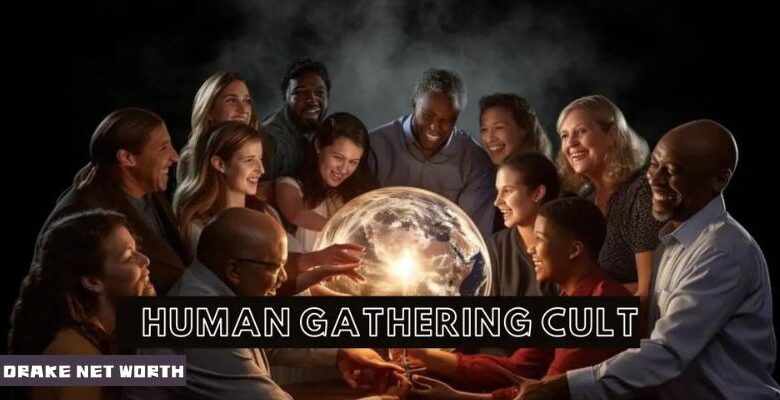Understanding the Human Gathering Cult: Origins, Beliefs, and Practices

The Human Gathering Cult has fascinated and perplexed people for decades. Known for its enigmatic rituals and secretive practices, this cult has sparked curiosity and controversy in equal measure. Whether it’s the allure of its mysterious origins or the impact it has on its followers, understanding the Human Gathering Cult is essential for anyone intrigued by unique social phenomena.
To uncover the truth behind the Human Gathering Cult, we must delve into its core beliefs, rituals, and societal impact. By exploring its history and practices, we can demystify the elements that make this cult both captivating and controversial. This guide will provide a comprehensive look into the cult’s inner workings.
Ready to dive deep into the world of the Human Gathering Cult? Read on to discover the secrets, controversies, and influence of this fascinating group.
What is the Human Gathering Cult?
Definition and Overview
The Human Gathering Cult is a secretive organization known for its unique practices and strong community bonds. It emphasizes the importance of collective human experience, aiming to create a harmonious society through shared rituals and beliefs. Members often refer to themselves as seekers of truth and enlightenment, united by their quest for deeper understanding and connection.
Historical Background
Early Beginnings
The origins of the Human Gathering Cult trace back to the early 20th century, when a group of intellectuals and spiritual leaders sought to create a community centered around shared human experiences. This group believed that modern society was losing touch with fundamental human values and aimed to restore these through collective rituals and teachings.
Evolution Over Time
Over the decades, the Human Gathering Cult has evolved, adapting to changes in society while maintaining its core principles. Initially a small, localized group, it has grown into a global movement with followers from various cultural and social backgrounds. This evolution has allowed the cult to remain relevant and continue attracting new members.
Core Beliefs and Practices
Fundamental Beliefs
The Human Gathering Cult’s fundamental beliefs revolve around the idea of collective consciousness. Members believe that true enlightenment can only be achieved through communal experiences and shared wisdom. This belief system emphasizes the importance of empathy, understanding, and mutual support, encouraging members to look beyond individualistic pursuits.
Key Tenets
Key tenets of the Human Gathering Cult include the pursuit of truth, the importance of community, and the rejection of materialism. Members are taught to seek knowledge and enlightenment through introspection and communal activities, fostering a sense of unity and purpose.
Rituals and Ceremonies
Major Rituals
Rituals play a crucial role in the Human Gathering Cult, serving as a means to strengthen community bonds and reinforce shared beliefs. Major rituals often involve symbolic acts, such as the sharing of food, collective meditation, and ceremonial dances. These rituals are designed to create a sense of belonging and spiritual connection among members.
Symbolic Acts
Symbolic acts within the Human Gathering Cult are meant to represent deeper spiritual truths. For example, the lighting of candles during ceremonies symbolizes the illumination of the mind and soul. Such acts are integral to the cult’s practices, providing members with tangible expressions of their beliefs.
Influence and Impact
Societal Impact
The Human Gathering Cult has had a significant impact on society, particularly in areas where its presence is strong. The cult’s emphasis on community and collective well-being has led to the creation of close-knit communities that prioritize mutual support and cooperation. These communities often serve as models of harmonious living, promoting values that contrast with the often individualistic nature of modern society.
Cultural Influence
Culturally, the Human Gathering Cult has influenced various forms of art, literature, and music. Its unique rituals and philosophies have inspired numerous works, contributing to a broader cultural discourse on spirituality and community. This influence extends beyond its members, reaching those who are intrigued by its practices and teachings.
Political Implications
The political implications of the Human Gathering Cult are notable, as its members often advocate for social change and justice. The cult’s principles emphasize equality and fairness, leading to involvement in various social and political movements. This activism has helped to raise awareness of important issues and promote positive societal changes.
Modern-Day Presence
Current Activities
Today, the Human Gathering Cult continues to thrive, with members participating in a variety of activities aimed at promoting their beliefs and values. These activities include community service projects, educational workshops, and public events that aim to spread their message and attract new followers. The cult’s adaptability has allowed it to maintain a strong presence in a rapidly changing world.
Notable Figures
Several notable figures within the Human Gathering Cult have played significant roles in shaping its direction and expanding its influence. These individuals are often charismatic leaders who inspire others through their dedication and vision. Their contributions have been instrumental in sustaining the cult’s growth and ensuring its continued relevance.
Controversies and Criticisms
Major Controversies
Like many secretive organizations, the Human Gathering Cult has faced its share of controversies. Critics have accused the cult of being overly insular and secretive, raising concerns about its practices and the well-being of its members. Allegations of manipulation and control have also surfaced, leading to public scrutiny and debate.
Public Perception
Public perception of the Human Gathering Cult is mixed, with some viewing it as a positive force for community building and others as a potentially dangerous organization. Media portrayals often amplify these concerns, highlighting negative aspects and sensationalizing the cult’s practices.
Criticisms from Experts
Scholarly Opinions
Experts in sociology and psychology have offered various critiques of the Human Gathering Cult. Some scholars argue that the cult’s emphasis on collective consciousness can lead to the suppression of individual identity and autonomy. Others point out the potential for psychological harm due to the intense communal pressure and expectations placed on members.
Comparing the Human Gathering Cult to Other Movements
Similarities with Other Cults
The Human Gathering Cult shares similarities with other cults and religious movements, particularly in its emphasis on communal living and spiritual practices. Like many cults, it offers a sense of belonging and purpose, attracting individuals seeking meaning and connection in their lives. However, its specific beliefs and rituals distinguish it from other groups.
Unique Aspects
Despite these similarities, the Human Gathering Cult has unique aspects that set it apart. Its focus on collective consciousness and the rejection of materialism are core principles that define its identity. Additionally, the cult’s adaptability and evolution over time have allowed it to remain relevant and continue attracting new members, differentiating it from more rigid and traditional cults.
Conclusion
The Human Gathering Cult represents a fascinating blend of spirituality, community, and controversy. Its unique beliefs and practices have created a strong sense of identity among its members, while also attracting interest and scrutiny from the outside world. By understanding the origins, rituals, and impact of this enigmatic group, we can gain deeper insights into the nature of human connection and the quest for meaning. As you explore further, you’ll uncover the many layers that make the Human Gathering Cult a compelling subject of study and discussion.
FAQ’s
What is the Human Gathering Cult?
The Human Gathering Cult is a secretive organization focused on collective human experience, enlightenment, and community living. It emphasizes shared rituals and beliefs to foster unity and spiritual growth.
What are the core beliefs of the Human Gathering Cult?
Core beliefs include the pursuit of truth, the importance of community, and the rejection of materialism. Members seek enlightenment through communal experiences and shared wisdom.
How has the Human Gathering Cult evolved over time?
Since its inception in the early 20th century, the cult has grown from a small group of intellectuals and spiritual leaders to a global movement, adapting to societal changes while maintaining its core principles.
What controversies surround the Human Gathering Cult?
Controversies include accusations of secrecy, manipulation, and control. Public perception is mixed, with some viewing it positively and others expressing concern over its practices.
How does the Human Gathering Cult compare to other movements?
While it shares similarities with other cults and religious movements, the Human Gathering Cult is unique in its focus on collective consciousness and the rejection of materialism. Its adaptability has also helped it remain relevant over time.
Read also: Unlocking the Mysteries of Rai Van: A Green Treasure of Vietnam




